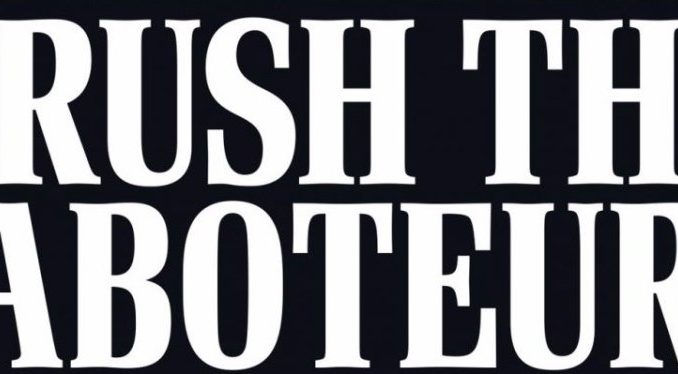
…the challenge of domestic economic management is not to “move the nation’s supply curve to the right”, as an economist friend of mine is now minded to demand, but to make conditions in the market less conducive for saboteurs. Thus, ultimately, it really doesn’t matter what party we are all in.
Emmanuel Macron’s (France’s freshly-minted president) political ascent has been nothing, if not phenomenal. The many firsts now make for pleasant reading; and invariably have provided space for debate around their different meanings and significance — for French politics, and for politicians everywhere.
Granted that there will always be difficulties grafting experiences such as this on to other political environments, nonetheless, I have been intrigued, by the conversation around how the opposition in France will respond to Mr. Macron’s policies over the life of the current parliament. When the French parliament opens tomorrow, the centre-right Republicans (with 136 deputies to Mr. Macron’s La République en Marche!’s — LRM — 308) will play opposition.
Volumes would still be written about how France’s main fifth Republic parties (the Republicans and the centre-left Socialists) came a cropper in these elections. But of far more interest would be how France’s political ancient regime responds to LRM’s positioning at the centre of French politics. Mr. Macron, persuaded that much of the paralysis undergirding France’s sub-par economic performance thus far is the consequence of entrenched partisanship, has clothed his party in just about every political idea — irrespective of partisan provenance — that might be helpful in shifting the economy’s supply curve to the right.
Inevitably, both parties of the right and left will find themselves having to decide how to respond to the LRM’s implementation of ideas that they once held dear. Already, a contingent of 40 Republican parliamentarians have plighted their troth to providing “constructive” assistance to Mr. Macron’s party. Whether Emmanuel Macron can increase domestic economic productivity in France or not, it would be important that the French people were invited to weigh-in on the ideas that their country will be run by over the next few years.
Important, this, in a much narrower context. The tribalism which Mr. Macron abhors; the same narrow-minded partisanship that today has American politics so divided, is the one ingredient that appears to be missing in our space. When key politicians move from the Peoples Democratic Party (PDP) to the All Progressives Congress (APC) and back again, the way Danfo drivers switch lanes on the Third Mainland Bridge, it is obvious how bereft of ideas the domestic space is.
…it would seem that we are agreed on one such idea: there is nothing like the “market”, nor of the forces of demand and supply. Rather, as the panjandrums of domestic monetary policy have argued, when prices are misaligned we ought to look to the activities of saboteurs and the like.
On the size of government, for example, how do our main political parties differ? How desirable is national ownership of the means of production? Is it the case that we concede such ownership only where natural monopolies are concerned? And for those who believe the private sector is a better driver of growth, how much of their resource conversion efficiency is a part of the argument, and how much of the remaining case results from their being less susceptible to corruption in a competitive market? Right-of-centre, is there clarity on what we would have to do to improve the public sector’s regulatory competencies, giving that transparent and competent governance in the public sector are as important to dealing with corrupt practices in the public sector as they are for addressing market-fixing practices in the private sector?
The chatter over the weekend around a “Price Control Bill” (allegedly sponsored by Senator Dino Melaye), brought much of the dilemma around domestic policy objectives home to me. Apparently, the bill seeks to “provide a legal framework to require the minister responsible for finance through the Utility Charges Commission to fix the maximum retail and wholesale prices for the essential goods – maize flour, wheat, wheat flour, rice, cooking oil, sugar, diesel, petrol”.
The incestuous nature of social media (followed by and following like-minded folk) meant that the consensus on my timeline around the price control bill was derisory. I guess the senator’s awful reputation did not quite help either. But in search of a sense of the preferences of our political class, it helps to remember that barely two weeks ago, the government of Akwa Ibom ordered shopkeepers to bring down the cost of food items in the markets across the state. Otherwise, the government promised to “dissolve the leadership of any union that does not comply with the order within 31 days”.
Arguably, then, it might be wrong to contend that the fluid nature of our politics speaks to the absence of ideas. Instead, it would seem that we are agreed on one such idea: there is nothing like the “market”, nor of the forces of demand and supply. Rather, as the panjandrums of domestic monetary policy have argued, when prices are misaligned we ought to look to the activities of saboteurs and the like. Conversely, we might not be averse to private property. We are only concerned that access to this must be through the instrument of the state.
Alas, therefore, the challenge of domestic economic management is not to “move the nation’s supply curve to the right”, as an economist friend of mine is now minded to demand, but to make conditions in the market less conducive for saboteurs. Thus, ultimately, it really doesn’t matter what party we are all in.
Uddin Ifeanyi, journalist manqué and retired civil servant, can be reached @IfeanyiUddin.
END

Be the first to comment